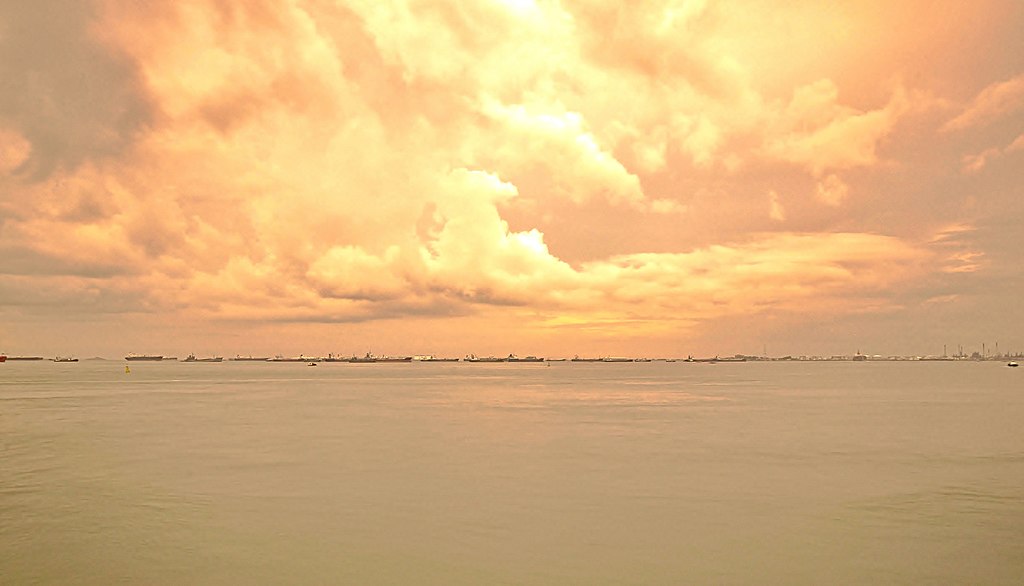Indonesia has emerged as a country that China cannot afford to ignore. The latest joint combat exercise that Indonesia did with the US and other countries has confirmed that Indonesia is strategically critical to the Indo-Pacific region.
More than 5,000 soldiers from Indonesia, the United States, and other countries participated in the joint combat exercise on the Indonesian island of Sumatra, signaling stronger ties amid growing maritime activity by China in the Indo-Pacific region. Australia, Japan, and Singapore joined the US and Indonesia’s Super Garuda Shield annual joint combat exercises. It seems Indonesia is now taking the lead in stopping arrogant China’s ‘unstoppable’ march decimating small and middle countries in and around the Indo-Pacific region.
Indonesian President Joko “Jokowi” Widodo’s speech on their 77th Independence day focused on the growing role of Indonesia in global politics. In his remarks, President Widodo hailed his country’s growing international stature and reiterated calls for the Southeast Asian nation to be a “bridge of peace” between Russia and Ukraine. “In 2022, we hold the presidency of the G20, an international forum made up of the world’s largest economies. Next year, we will assume the chairmanship of ASEAN,” he said in an annual state of the nation speech on the eve of independence day. “It indicates that we [are at the] pinnacle of global leadership,” he added. His remarks have certainly irked China which considers Indonesia as a threat in the region. Indonesia’s growing diplomatic relations with the US have increased tension between Indonesia and China.
Indonesia’s attitude toward China has also deteriorated due to the Natuna dispute. Reports of Indonesia’s plan to turn the Natuna Regency into a special economic zone (SEZ) have not gone well in China, which claims the entire South China sea as its own. But for Indonesia, the designation will introduce an array of incentives to bolster the region’s tourism, fishing, energy, and security sectors.
In 2021, the Chinese government directed Indonesia to stop drilling in the Natuna islands to extract oil and gas because it falls within its “nine-dash line.” However, the Indonesian government refused to comply. As a result, military ships from both sides started patrolling oil and gas fields in a tense environment.
According to available information, Indonesia may turn the Natuna Regency in the South China Sea into an SEZ. The move will help provide maritime security to the island and may attract investment.
A government working group set up early in 2022 has conducted studies to convert the island group into an SEZ at the request of the Natuna Regency office. Indonesian president Widodo signed a decree to divide the Natuna marine area into regulated zones, such as exploration, defense, and fishing. The declaration of Natuna island as SEZ will likely cause tension between Indonesia and China. There have been ongoing maritime disputes between Indonesia and China over this part of the South China Sea. In December 2021, Chinese diplomats told Indonesia’s foreign ministry to stop drilling at the Natunas rig, which it claims was in Chinese territory. Currently, Indonesia has 18 SEZs, 10 of which are industrial zones and eight of which are in tourism zones.
Experts said that any investment in the Natuna Regency must take political risks into account. For example, in the tourism sector, a diplomatic standoff between the Indonesian and Chinese governments could lead to boycotts from Chinese tourists or bans on their ability to book tours in the area. In 2017, the Chinese government banned travel agencies from offering group tours in South Korea amid a dispute between the two countries. Further, confrontations between fishing vessels active in the area surrounding the Natuna Islands and the significant Indonesian military presence are likely to harm its reputation as a tourist destination. The risks are not just limited to tourism, said experts.
Background information:
China had begun to assert its claims to the nine-dash line a decade ago, leading to tensions over the region of the Natuna sea. As China started making its claim over the South China Sea, the Indonesian Foreign Affairs Ministry in November 2015 sought a clarification on the waters of the Natuna Sea. The Chinese foreign ministry spokesperson’s response clearly stated that Beijing did not have any claims to Natuna island, leaving the region of Indonesia’s EEZ extending from the island in a state of diplomatic uncertainty and ambiguity. However, Indonesia has repeatedly focused on the importance of UNCLOS and the relevance of adherence to international law to resolve maritime disputes in the region. In 2015, as part of its response, Indonesia also clearly reiterated that it did not recognize the nine-dash line. Indonesia further said it did not consider itself a claimant in the South China Sea dispute as it had no claims over the Spratly and Paracel group of islands, which was the core area of contestation. In a defiant stand, Indonesia in 2017 began to identify the region around the Natuna island as the north Natuna Sea.

